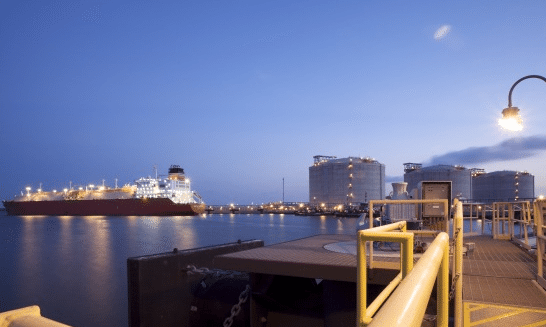By Ayesha Rascoe and Timothy Gardner WASHINGTON, Feb 11 (Reuters) – The U.S. Energy Department on Tuesday approved exports from Sempra Energy’s Cameron liquefied natural gas (LNG) project in Louisiana as the Obama administration moves forward with its goal of expanding the global market for the fuel. The conditional approval of exports from the terminal to countries with which the United States does not have free trade agreements, such as India and Japan, was the sixth approval by the department since 2011, and the first since mid-November. Cameron’s application to export up to 1.7 billion cubic feet per day brings total U.S. authorized LNG exports to almost 8.5 bcf feet per day, once the terminals are constructed and working at full capacity. Sempra shares jumped on news the approval was expected, and in early afternoon trading were up 1.2 percent at $93.74. U.S. natural gas production has soared to record levels in recent years because of advanced drilling techniques, including hydraulic fracturing, or fracking. The surge in output unleashed a flood of applications to ship excess U.S. gas overseas, where it can fetch higher prices. After a nearly two-year pause in its review while studying the potential impact of exports on the domestic market, the administration resumed the permitting process in 2013. Since then the gap between decisions on applications has been as much as three months or as little as five weeks. That uneven pace of approvals has frustrated both supporters and opponents of the LNG export push. Republican lawmakers, along with Democrats representing oil and gas producing states, have pressed for much quicker processing of the more than 20 applications that remain in the government’s queue. Republicans in the House of Representatives said last week that if significant progress is not made this year, they would look at crafting legislation to speed up review. An Energy Department official on Tuesday defended the agency’s approach to LNG exports. “We are doing the best we can to address these in a timely fashion,” Paula Gant, deputy assistant secretary of energy for oil and natural gas, said at a conference for utility officials in Washington D.C. Calling the Cameron approval “long overdue,” incoming Senate Energy Committee chairwoman Mary Landrieu said the terminal would allow her state of Louisiana to “compete with foreign companies in the battle for the huge international LNG market.” Landrieu’s support for LNG exports differs from her predecessor at the helm of the energy committee, Ron Wyden of Oregon, who has been much more cautious on the export issue. Wyden, who this week will become chairman of the Senate Finance Committee, has been concerned that unfettered gas exports could increase fuel prices for Americans. A group of industrial companies, led by Dow Chemical, has also called for the administration to slow down on export approvals to ensure that manufacturers who have benefited from cheap gas are not hurt by possible price spikes. America’s Energy Advantage, the industry coalition formed by Dow and its allies, has pointed to propane shortages this winter as an example of what could happen with natural gas supplies if unlimited exports are allowed. U.S. law allows mostly unrestricted international trade propane and refined oil products, such as gasoline. © 2014 Thomson Reuters. All rights reserved. |
↧
Cameron LNG Terminal Gains U.S. Export Approval
↧












